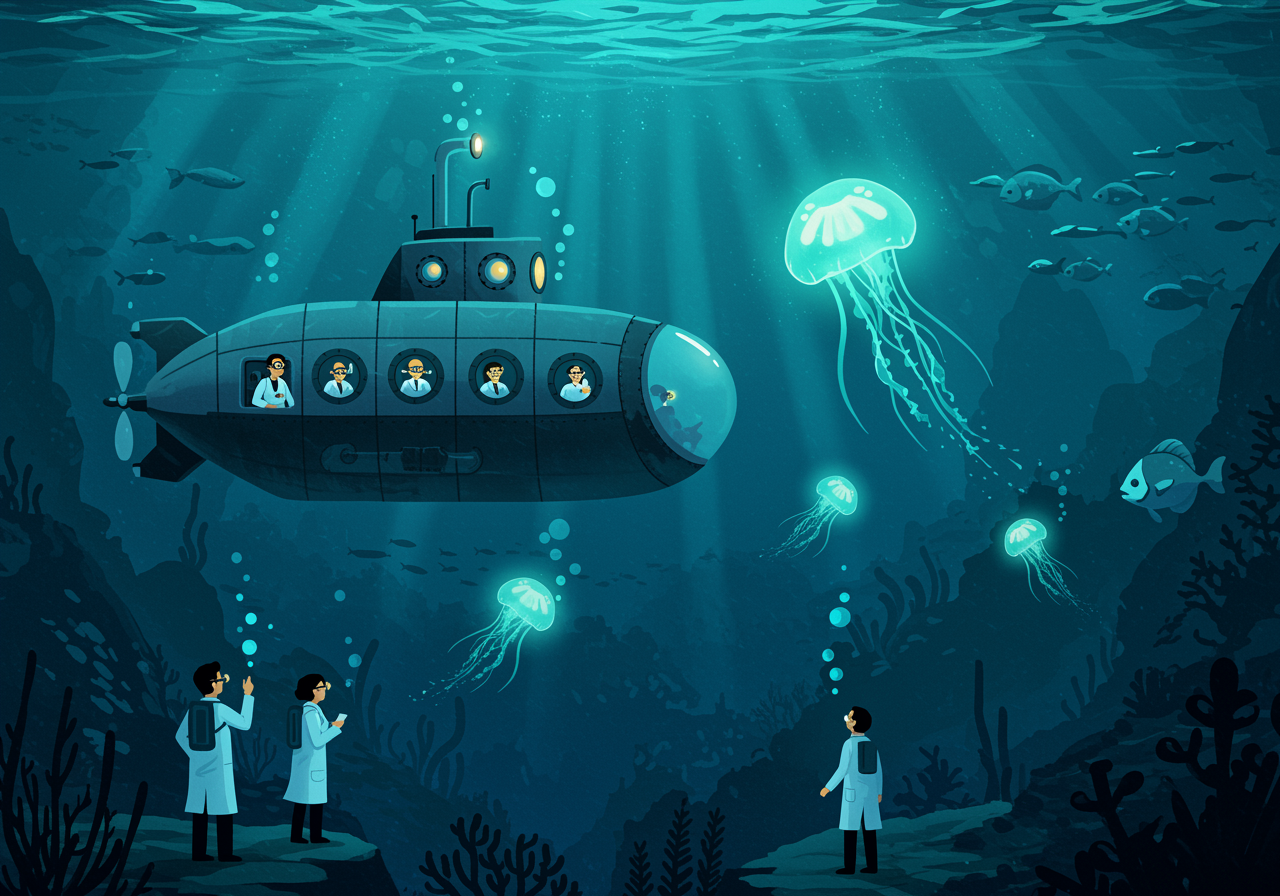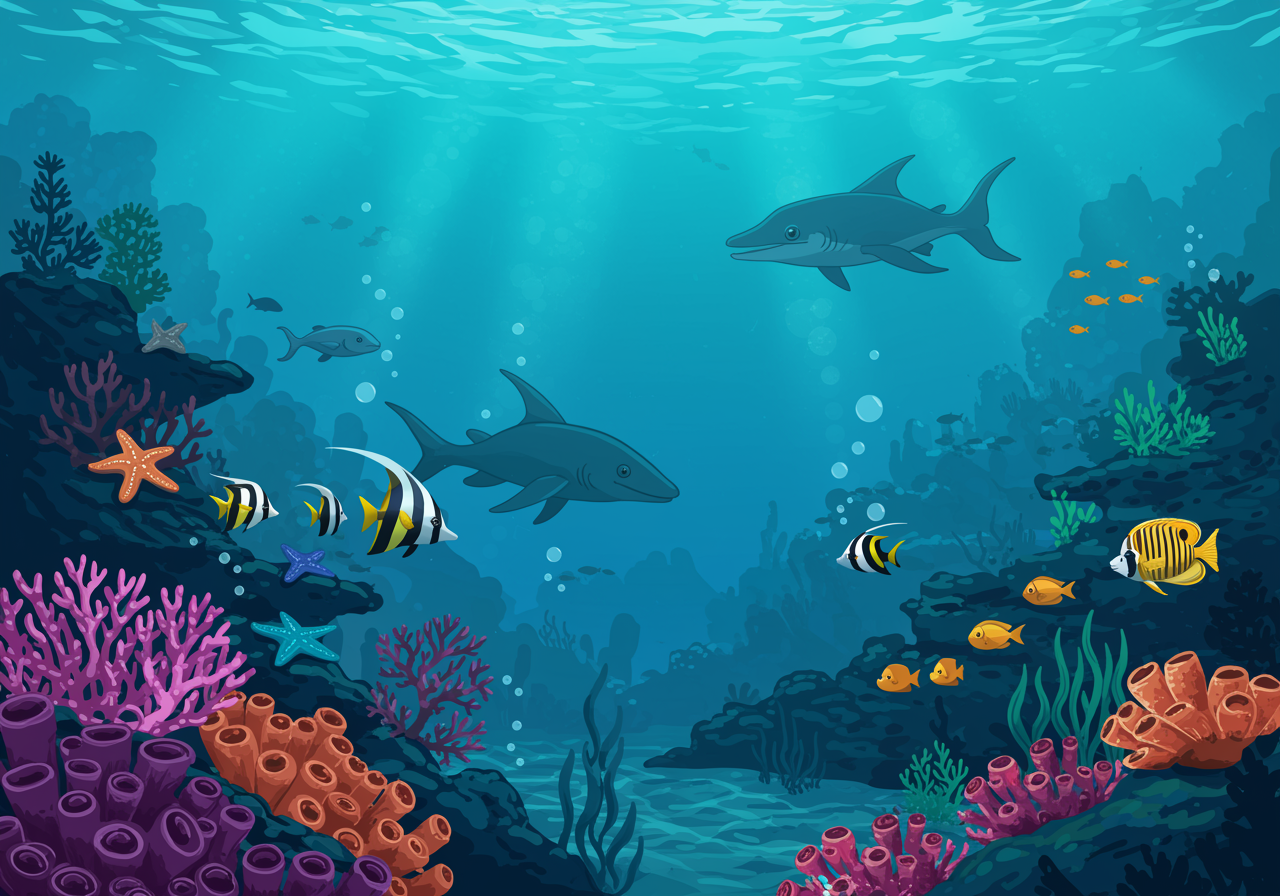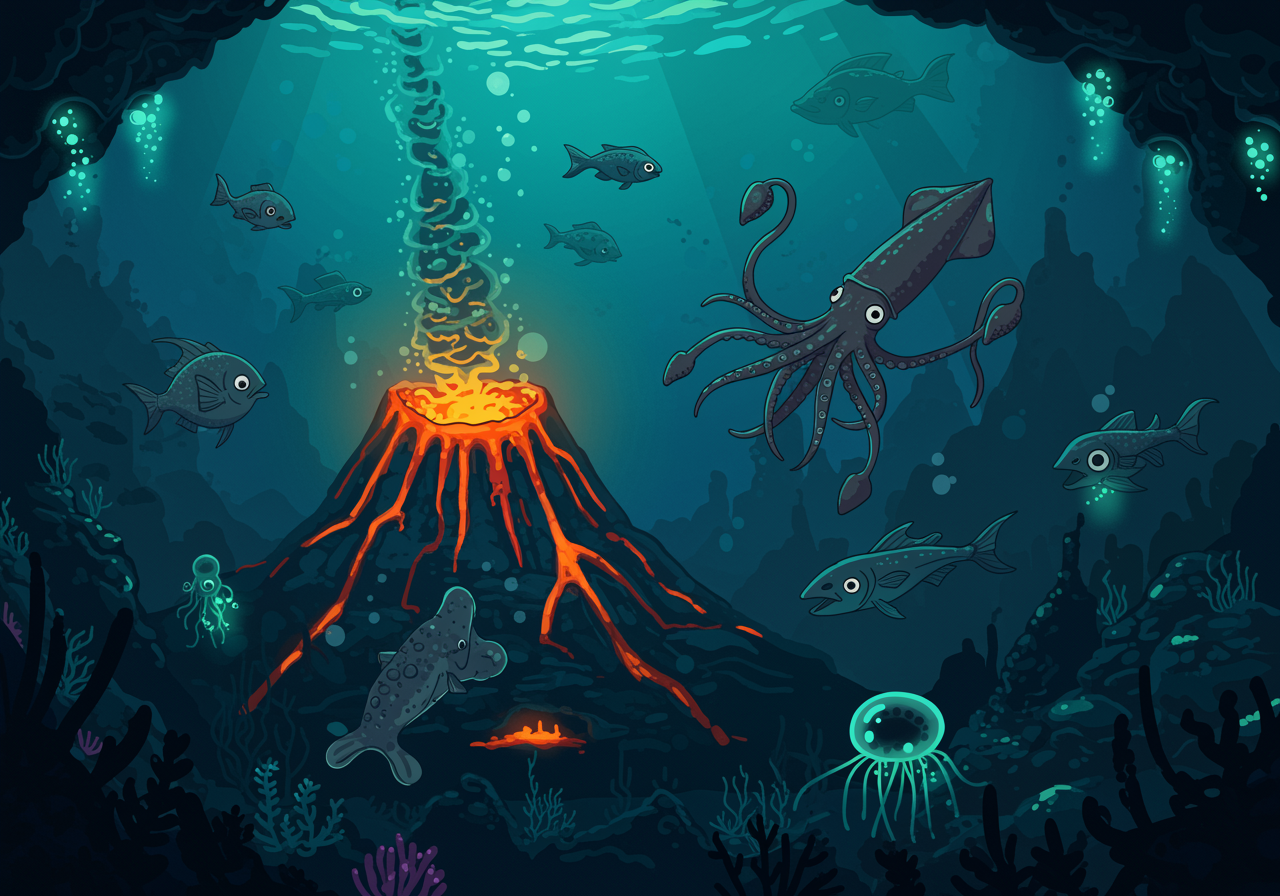Ocean Mysteries: The Greatest Treasure Hunt on Earth!
Dive into the mind-blowing secrets hiding in our planet’s deepest waters
Get ready to explore the ultimate mystery zone that covers most of our planet but remains almost completely unknown to humans!
Overview
Imagine if 95% of your neighborhood was completely off-limits and unexplored – that's exactly what our oceans are like! While we can map distant planets and send rockets to Mars, the deepest parts of our own oceans remain more mysterious than outer space. Talking with your child about ocean mysteries opens up incredible conversations about exploration, science, and the amazing creatures that might be living right here on Earth. It's the perfect way to spark curiosity about our planet's greatest unsolved puzzles.

Understand in 30 Seconds
Get up to speed quickly
- We Know Almost Nothing: Humans have explored less than 5% of our oceans – that means 95% is still a complete mystery!
- Deeper Than Space: The ocean trenches are so deep that Mount Everest could fit inside them with room to spare.
- New Species Everywhere: Scientists discover about 2,000 new ocean species every single year – imagine what's still out there!
- Technology Challenge: It's actually harder and more expensive to explore the deep ocean than it is to go to space!
Real Life Scenario
Situations you can relate to
Think about this: You're playing the ultimate hide-and-seek game where the hiding spots cover 71% of the entire planet! That's what ocean exploration is like. Every time scientists send down underwater robots or submarines, it's like opening a treasure chest – they never know what they'll find. Maybe it's a fish that glows like a living disco ball, or an underwater mountain taller than any building, or even the ruins of an ancient city. Just last year, scientists found a massive coral reef off the coast of Australia that was taller than the Empire State Building – and nobody knew it existed! What do you think might be hiding in the parts we haven't explored yet?

Role Play
Spark a conversation with “what if” scenarios
What if you were designing a robot to explore the deepest ocean trench?
- Role play: Take turns being the engineer and the robot. Describe what challenges you'd face (crushing pressure, no light, freezing cold) and what cool discoveries you might make!
What if you discovered a new species of deep-sea creature?
- Role play: One person describes the amazing creature they 'found' while the other person tries to draw it based on the description. Then switch roles!
What if you found an underwater city that's been hidden for thousands of years?
- Role play: Act out being underwater archaeologists exploring the mysterious city. What clues would you look for? What stories might the ruins tell?
FAQs
Frequently asked questions people want to know
Why haven't we explored more of the ocean if it covers most of Earth?
The ocean is incredibly deep, dark, and has crushing pressure that would squash a human instantly. It's actually more challenging and expensive than space exploration!
Are there really monsters in the deep ocean?
While there aren't "monsters" like in movies, there are some pretty wild-looking creatures! Giant squids, bioluminescent jellyfish, and fish with huge teeth all call the deep ocean home.
Could there be underwater cities or UFO bases down there?
Scientists have found underwater ruins from ancient civilizations, but no alien bases! The real discoveries are often more amazing than science fiction though.
Examples in the Wild
See how this works day to day
- In 2022, scientists discovered over 5,000 new species in the Clarion-Clipperton Zone of the Pacific Ocean, including glass sponges and deep-sea corals (National Geographic)
- The Mariana Trench is so deep (36,000 feet) that if Mount Everest was placed at the bottom, its peak would still be over a mile underwater (NOAA Ocean Explorer)
- In 2020, scientists discovered the longest animal ever recorded – a 150-foot-long siphonophore in Australian waters (Schmidt Ocean Institute)
- Underwater volcanoes create new islands and host unique ecosystems, with thousands of them still unmapped on the ocean floor (Smithsonian Ocean Portal)
In Summary
What you should know before you start
- Our oceans are Earth's greatest unexplored frontier, with 95% still unmapped and unknown
- New species are discovered constantly, showing us how much life exists in the deep
- Ocean exploration is more challenging than space exploration due to pressure and darkness
- Every ocean expedition brings amazing discoveries that change what we know about our planet
Pro-tip for Parents
You got this!
If your child seems overwhelmed by how much we don't know about the oceans, flip the perspective! Frame it as the most exciting adventure waiting to happen. Ask them what they would want to discover and encourage their wildest theories. Sometimes kids worry about scary deep-sea creatures, so focus on the amazing adaptations and cool science rather than the 'monster' angle. Remember, the unknown isn't scary – it's full of possibilities!

Keep an Eye Out For
Find these examples in everyday life
- News about new species discoveries or deep-sea expeditions – they happen regularly and make great conversation starters
- Ocean documentaries or nature shows that showcase deep-sea footage and new technology
- Local aquarium visits, especially exhibits about deep-sea creatures or ocean exploration
Explore Beyond
Look up these related research topics
- How do deep-sea creatures survive in extreme conditions without sunlight?
- What role do oceans play in climate change and weather patterns?
- How do underwater volcanoes and earthquakes affect life on land?